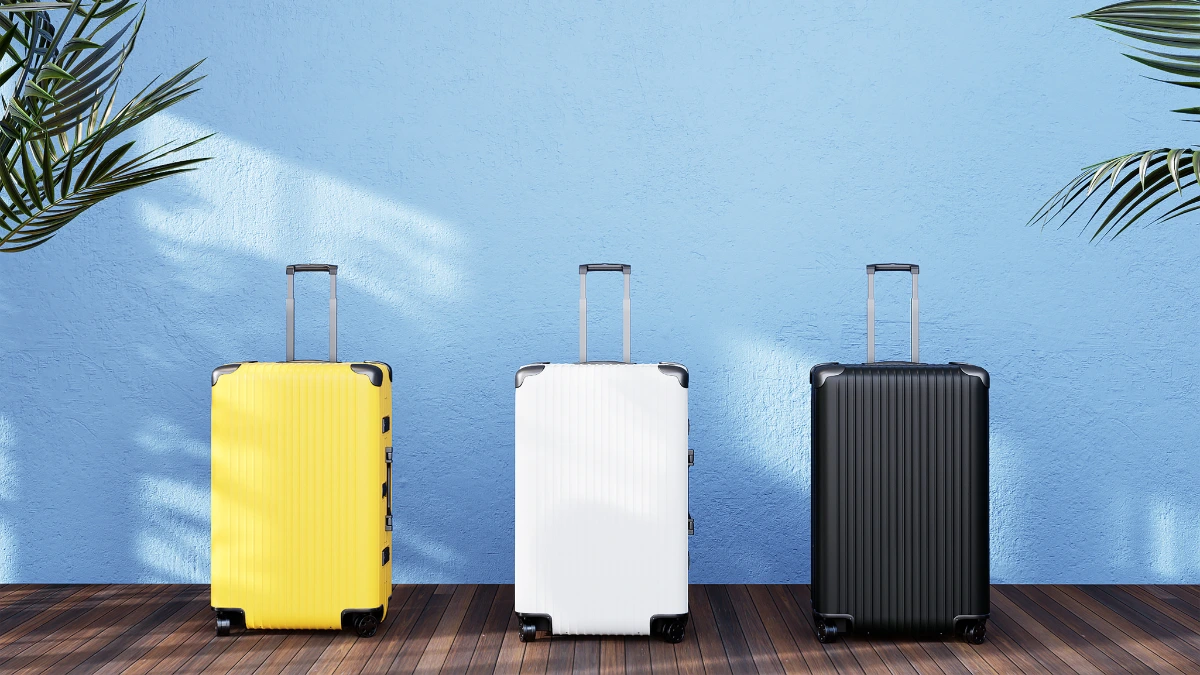Do you love to travel? Do you want to travel comfortably, safely, and have a good experience while traveling? Smart luggage is the answer.
Equipped with many features and a modern design, smart luggage can be your choice in packing your belongings while traveling.
Are you familiar with these smart devices? This article will help inform you about smart luggage from its definition, features, benefits, and regulations in Indonesia.
What is Smart Luggage?

Smart luggage is a suitcase that is equipped with advanced features such as GPS, WiFi connectivity, an automatic drive motor, and USB charging. It also has a luxurious design and light weight that makes it look futuristic.
This suitcase with its features and design is designed to provide convenience, safety, and a better travel experience for users.
In running the various features, this suitcase uses lithium-ion batteries. There are two types of batteries used, non-removable and removable.
Non-removable batteries are generally prohibited from being carried in the cabin and luggage as they pose a fire risk. Removable batteries are allowed to be brought into the cabin with the battery position removed, or remain installed in a non-active state.
The Features
Smart luggage generally comes with several advanced features designed for convenience, safety, and a better travel experience. Here are the common features that one can enjoy:
- GPS Tracking: Allows tracking of the luggage through an app on a smartphone.
- WiFi Connectivity: Allows connecting with WiFi for internet connectivity.
- Motorized wheels: Allows it to move automatically.
- Auto lock: Uses an app or fingerprint to lock and unlock the suitcase.
- USB charging: Provides a USB port for charging electronic devices.
The Benefits

Using smart luggage will provide many benefits, especially for supporting a better travel experience. Here are some of the main benefits:
1. Control via smartphone
Control via smartphone is a key benefit of smart luggage. The luggage is equipped with wireless capabilities with WiFi and Bluetooth connectivity, making it possible to connect with a smartphone. This allows you to perform real-time tracking or remote lock/unlock.
2. Luggage tracking
Another benefit of smart luggage is luggage tracking. With GPS technology, the location of the luggage can be tracked in real-time through smartphone applications. This will certainly help if the luggage is lost or delayed in delivery.
3. Provides traveling comfort
Smart luggage features motorized wheels that can move automatically. The speed of the luggage can be set via a smartphone so that it can be adjusted to the user’s road speed. This ability provides convenience when traveling without having to push or pull the suitcase.
4. Charging
Charging is another benefit of smart luggage. The lithium-ion batteries of these smart devices allow users to charge smartphones, tablets, and laptops via the USB or Type-C ports provided on the device.
5. Enhancing security
Another benefit of smart luggage is its ability to enhance security. These smart devices are equipped with sensors and smart locks via a smartphone app, making it impossible for just anyone to open them.
Regulation in Indonesia

The smart luggage uses technologies such as Bluetooth, RFID, or WiFi that operate within a specific frequency spectrum. In Indonesia, any Bluetooth or WiFi-based wireless device is required to have a DJID (Directorate General of Digital Infrastructure) under the Ministry of Communication and Digital (KOMDIGI).
Smart luggage regulation is based on KEPMEN No. 260 Tahun 2024 for Bluetooth and RFID, and KEPMEN No. 12 Tahun 2025 for WiFi, which requires all radio frequency-based devices to meet specific technical standards before being sold in the country.
The DJID certification ensures that the product meets government safety and quality regulations and does not interfere with other communication devices. The certification process involves technical testing, such as frequency adjustments, safety checks, and compatibility with the surrounding environment.
Once the tests are completed, products that pass are listed in a Test Result Report, which confirms that the product is safe and ready for sale in Indonesia. This report reassures customers that the product meets technical standards and is secure.
For companies wanting to sell smart luggage appliances in Indonesia, Type Approval Certification Services for ICT Products are available to assist with this process. This service includes preparing technical and legal documents, conducting required testing, ensuring compliance with regulations, helping companies streamline the certification process, and giving consumers confidence in certified products. [UN]

